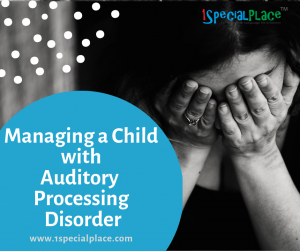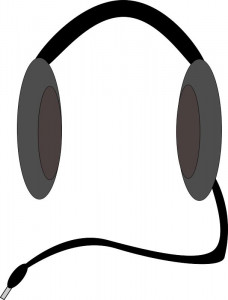Managing a Child with Auditory Processing Disorders
Managing a Child with Auditory Processing Disorders
Auditory processing disorder (APD), also known as Central Auditory Processing Disorder (CAPD), is a hearing problem that affects some portion of the school aged children across the world.
Children with APD, cannot ‘process’ what they hear in the same way like any other children – because what they hear at ears and that processed at the brain don’t fully coordinate; something interferes with the way the brain recognizes and interprets sounds that is heard, especially speech.
Auditory processing disorder
With the early identification and right therapy, these children can cope up well in school and life. Early identification and diagnosis is important, because if the condition isn’t identified and treated early, child can have speech and language delays or problems related to academics.
Along with ongoing therapy, if managed effectively at home and at school, children with APD respond well. Here are few tips for managing the child with APD.
Strategies to follow:
- Boost auditory attention with games and tapes. You may get help from your child’s therapist to choose activities and tapes.
- Reduce background noise whenever possible at home and at school.
- Always make sure that, your child is looking at you when you’re speaking.
- Tap a shoulder or get attention before you start speaking.
- Use simple, expressive sentences. Use short utterances – break down sentences whenever necessary.
- Emphasize the key words while talking.
- Speak at a slightly slower rate and with slightly increased volume. Give sufficient pause between each phrases, sentences and/ or words.
- Ask your child to repeat the instructions back to you to ensure they have understood what has been told. Repeat if necessary.
- Develop the habit of note taking, where child writes down important key words or phrases for later references.
- Always makes sure your child does homework in quiet place – not in front of television, not on kitchen table or living room. Make sure their room doesn’t have any sources of noise such as wall drops, any decorative items which may make some constant unwanted noise.
- Use a relaxation exercise before important conversations, works or study time.
Apart from these, children with APD can benefit from few other strategies used at school. Please feel free to discuss openly with your child’s teacher about the issues your child is facing and how they can help your child in classroom.
- Preferred seating: Arrange the child’s seating in such a way that it will make it as easy as possible to hear what teacher is telling. It could be in front of the classroom, or in the sides of each row if teacher moves around while talking, or in such a way that child can see board very easily without any obstructions etc.
- Use of Visual Cues: Request teacher to use visual cues and also ensure that child looks at when visual cues are used.
- Emphasize the key words: Teachers can write down the key words on board or say it little loudly so that child focuses more on such words.
- Give kids a heads up when something important is coming: Use catch phrases to give child a signal that something important is coming their way, they need to pay attention to. It could be something as simple as, ‘Here’s the thing’, ‘are you pupil ready?’ etc.
- Help with sequencing: Make use words that help a child to sequence events, e.g., first, second, then, last etc.
Are you looking for Sequencing Tips? Click here for it.
- Assistive technology: For kids who need extra help following the teacher’s voice in a noisy classroom, there is technology that can help. The child wears headphones that reduce background noise, and the teacher wears a wireless microphone connected to headset.
These are few strategies and tips to manage child with Auditory Processing Disorders. Please do let us know if you have any queries in the comments section below.
Have you subscribed to our weekly articles? If not, please do click here. Are you looking to help anybody with Speech, Language, Communication needs or any other allied health services? Please do reach us here.
If you wish to know more about Speech Therapy, kindly contact us at info@1specialplace.com
For more ideas check out our other blogs
- Speech Therapy Tips for Teachers - May 4, 2020
- Angelman Syndrome - May 4, 2020
- Outdoor Activities for Language Development - July 30, 2019








Leave a Comment
(2 Comments)
Hi Kaveri
I work as SLP in a school setup. I m having difficulty in identifying the children with APDs. Can you suggest some test/ screening tools which can be used for the same?
I will be grateful.
Regards
Akanksha
My son is having auditory processing disorder
Categories
Recent Posts